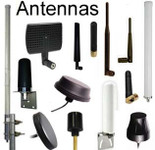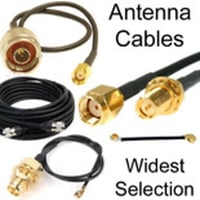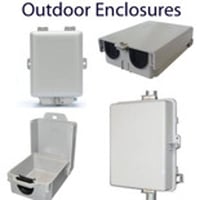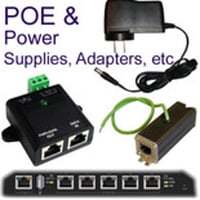Adapters with TNC connector
TNC Cable Joiners, Adapters, Couplers, Gender Changers
Associated Wireless Technologies:
TNC adapters are utilized in numerous wireless technologies. They are prevalent in:
- Cellular Networks: Enhancing mobile communication by ensuring secure and stable connections.
- WiFi Routers: For providing internet connectivity in homes and businesses.
- Satellite Communication: Ensuring clear transmission and reception of signals in satellite devices.
- RF Applications: Radio Frequency applications often depend on TNC connectors for a secure connection.
Torque Ratings:
A crucial aspect of TNC adapters is their torque rating, determining how tightly the connector can be fastened. Typical torque ratings for these adapters range between 1-12 in-lbs, ensuring that they remain secure while preventing damage during installation.
Key Features:
TNC adapters are lauded for their unique features:
- Weather Resistance: Built to withstand external conditions, especially when used outdoors.
- High-frequency Performance: With capabilities ranging up to 11 GHz, they offer superior signal integrity.
- Secure Connection: The thread interface ensures that the connection is secure and doesn't come off easily.
- Low Reflection: Offering minimal signal reflection ensures optimal signal transmission.
Materials Composition:
TNC adapters are crafted from durable materials to offer longevity and optimum performance. Commonly used materials include:
- Brass: Often used for the body due to its conductivity and corrosion resistance.
- Beryllium Copper: Used for the socket contacts due to its excellent electrical properties.
- PTFE (Polytetrafluoroethylene): As an insulator, ensuring that there is no internal electrical interference.
- Nickel or Gold Plating: Enhancing conductivity and providing a corrosion-resistant layer.
Types:
There are multiple types of TNC adapters to cater to varying needs:
- Straight Adapters: For straightforward, linear connections.
- Right-Angle Adapters: Useful in situations where space is limited.
- Bulkhead Adapters: Installed on enclosures, panels, or walls to ensure a connection through a barrier.
- TNC-to-other Formats: Adapters that allow for TNC connections to other connector types, such as SMA, BNC, or N-type.
Applications:
TNC adapters have found utility in a myriad of applications:
- Military Communication: Offering reliable communication with minimal interference.
- GPS Systems: Ensuring accurate positioning and tracking.
- Broadcast: In both radio and television for signal transmission.
- Lab Testing: Offering secure connections in testing scenarios.
Conclusion:
TNC adapters, given their stellar features and diverse applicability, are integral to the world of wireless communication. From their sturdy material composition to their role in facilitating secure wireless technologies, they stand as a testament to the importance of having the right connection. Whether it's for an outdoor satellite setup, an intricate lab test, or even a simple WiFi router at home, TNC adapters are at the heart of ensuring seamless communication.
When it comes to ensuring seamless wireless communication, having the right hardware is crucial. TNC adapters, often a pivotal component in various wireless setups, are noteworthy for their diverse applications and robust features. In this article, we'll delve into the world of TNC adapters, exploring their associated wireless technologies, torque ratings, key features, materials composition, types, and applications.
TNC connectors & cables: Applications
TNC (Threaded Neill–Concelman) connector is a miniature, threaded and waterproof connector, with a constant impedance rating of 50 Ohms and a bandwidth capacity range of 0 – 11GHz from DC. The TNC connector is similar to the BNC connector, only difference being the TNC is threaded - replacing the BNC’s bayonet. TNC also has a better performance at microwave frequencies. The threaded coupling has a high resistance to vibrations and significantly reduces noise.
TNC connectors terminate a variety of miniature coaxial cable, either by crimping or by clamping. The connector bodies are made of brass and stainless steel coated with resistant gold or nickel plating at contact points.
TNC connectors are made in two types: Standard and Reverse polarity TNC (RP-TNC). Standard male connector has internal threading and a male pin, while the female has a receptacle and external threading. Reverse polarity TNC (RP-TNC) male has a central receptacle and the female a pin. Some manufactures may use reverse threading or fabricating female contacts into plugs and male into jacks to achieve reverse polarity. In any case reverse and standard connectors are not compatible to connect to each other.
Male TNC connectors are available in straight and angled versions. The shock resistant and waterproof coupling mechanism makes the TNC connector ideal for WiFi antennas and other applications.
75 Ohms TNC connectors provide standing wave ratio of 1 GHz. They have less dielectric material in the coupling ends than the 50 Ohms connectors. Both 75 Ohms and 50 Ohms connectors are inter-matable.







